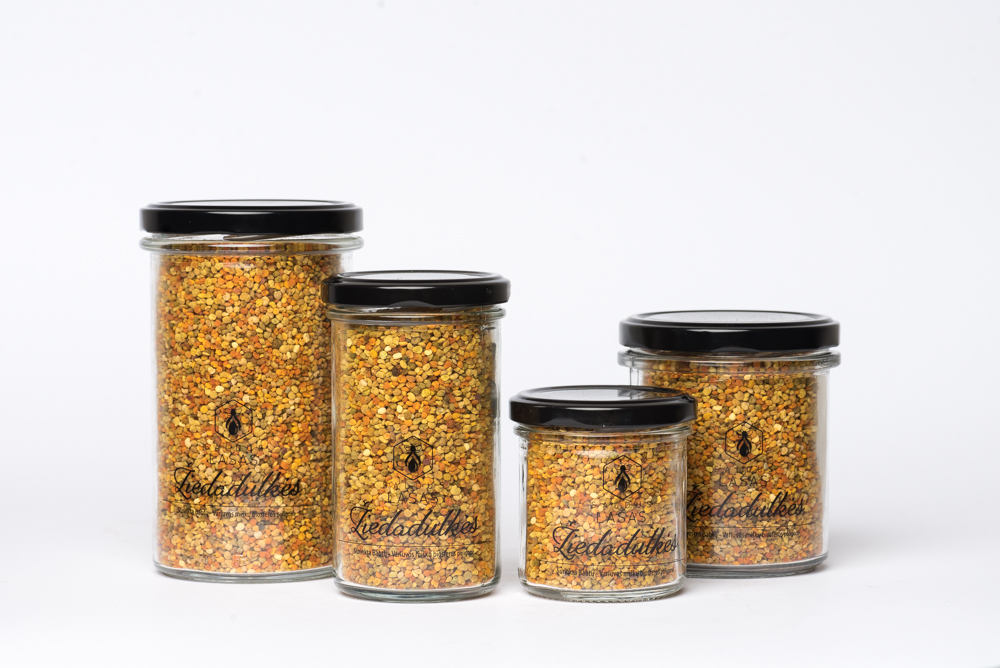Bees, Bee Pollen, Health
Bee Pollen from Sweet Drop Apiary
Sweet Drop bee pollen what it is and what their benefits?
Pollen is the male gamete of flowering plants that matures in the anthers of the flower. When the pollen matures, the pollen walls rupture and the pollen becomes polluted.
Pollen is the only source of amino acids, fats, micro and macro minerals and vitamins for bees. To make the pollen stick together, the bees add nectar or honey.
Different colors
Pollen is available in various colors and shades, such as: raspberry pollen – light, linden – light green, weights, mustard – yellow, dandelion – orange, blueweed – blue, chestnut – brown-red, poppy – dark purple, etc.
Benefits for human
Bee pollen for human consumption is marketed as a food ingredient and as a dietary supplement. The largest constituent is carbohydrates, with protein content ranging from 11,36 to 51,2 percent depending on the plant species collected by bees. Bee pollen boasts an impressive nutritional profile. It contains over 250 biologically active substances, including proteins, carbs, lipids, fatty acids, vitamins, minerals, enzymes and antioxidants. Pollen fats contain 9 fatty acids, including linoleic, linolenic and arachidic, which are part of the vitamin F complex. Pollen is very rich in vitamins, especially group B, A (carotene); B1 (thiamine chloride); B2 (pyroxine); B3 (pantothenic acid); PP (nicotinic acid); M (folic acid); H (biotin); C (ascorbic acid); E (tocopherol); D (ergocalciferol); PR (routine); F (linoleic, linolenic and arachidic acids); inositol, vitamin K. The content of minerals in pollen is 1.5 – 9%. Rich in potassium, phosphorus, magnesium, iron. Micronutrients: copper, boron, zinc, manganese, cobalt (stimulates the production of blood-forming elements), molybdenum. There are about 60 species of chemical elements in pollen.
Pollen is rich in enzymes: amylase, diastase, invertase, catalase, lipase and phosphatase. In our bodies, phosphatase plays a very important role – it is involved in the metabolism of body fat, protein, carbohydrates, connective tissue formation and other processes. Trace elements are very important in the metabolism of proteins, enzymes, hormones. The macro and micro elements in pollen are absorbed by the human body a hundred times better.
Pollen improves appetite, normalizes gastrointestinal function, and affects blood organs, increases hemoglobin and erythrocytes in the blood. Helps in the treatment of anemia, hypertension, and diseases of the nervous and endocrine systems.
Pollen is an effective drug in the treatment of prostate adenoma and diseases of inflammatory origin.



